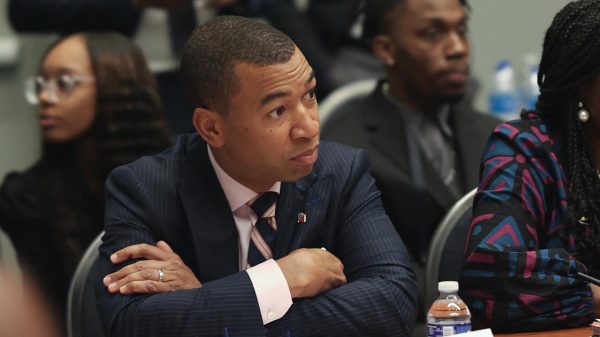|
Getting your Trinity Audio player ready...
|
A pattern of armed robberies targeting Latino stores and individuals in Montgomery has shaken the community.
Some of those robberies have turned fatal, such as the June shooting at Tienda Los Hermanos that killed three people.
Local organizer Jose Vazquez joined forces with the Alabama Coalition for Immigrant Justice to host a city-wide Dia de los Muertos celebration Saturday in hopes to bring the community together.
“It has really rocked the Latino community here in Montgomery,” Vazquez said.
There are about 10,000 Latinos living in and around the city.
Vazquez said Latino businesses have become targeted because the owners are unlikely to carry weapons and are afraid to talk to police.
Residents told the Times that distrust has been sown that police will check immigration status if called. Response times of over an hour and the language barrier frustrating communications were other reasons given for failure to report incidents.
Vazquez said there has been an ofrenda, an altar honoring passed loved ones, available in Montgomery in years past, but not typically a festival like this year.
”This gathering was to remind Latinos in Montgomery that we’re a powerful group,” Vazquez said. “There are not a lot of opportunities to get together united.”
While dealing with the pattern of local robberies, immigrants statewide are facing challenges as the Republican party pushes Donald Trump’s deportation plan and amplifies his misleading message of migrant crime.
While Haitian immigrants have been the focus of recent narratives, including in communities like Albertville and Sylacauga, Trump has vowed to use the Alien Enemies Act of 1798 to enact his deportation plan.
The act was last used to place Japanese citizens in internment camps during World War II.
Alabama Secretary of State Wes Allen also attempted to purge noncitizens from the voter rolls by targeting 3,251 individuals who at some point had been issued noncitizen IDs.
A lawsuit brought by ACIJ and others contends this caught up numerous immigrants who have since become naturalized and eligible to vote, saying Allen’s program has at least a 60 percent error rate.
A federal judge blocked the program, withholding any judgment on the merit of those arguments and solely for the fact that the program was launched within 90 days of election day in violation of federal law.






















































